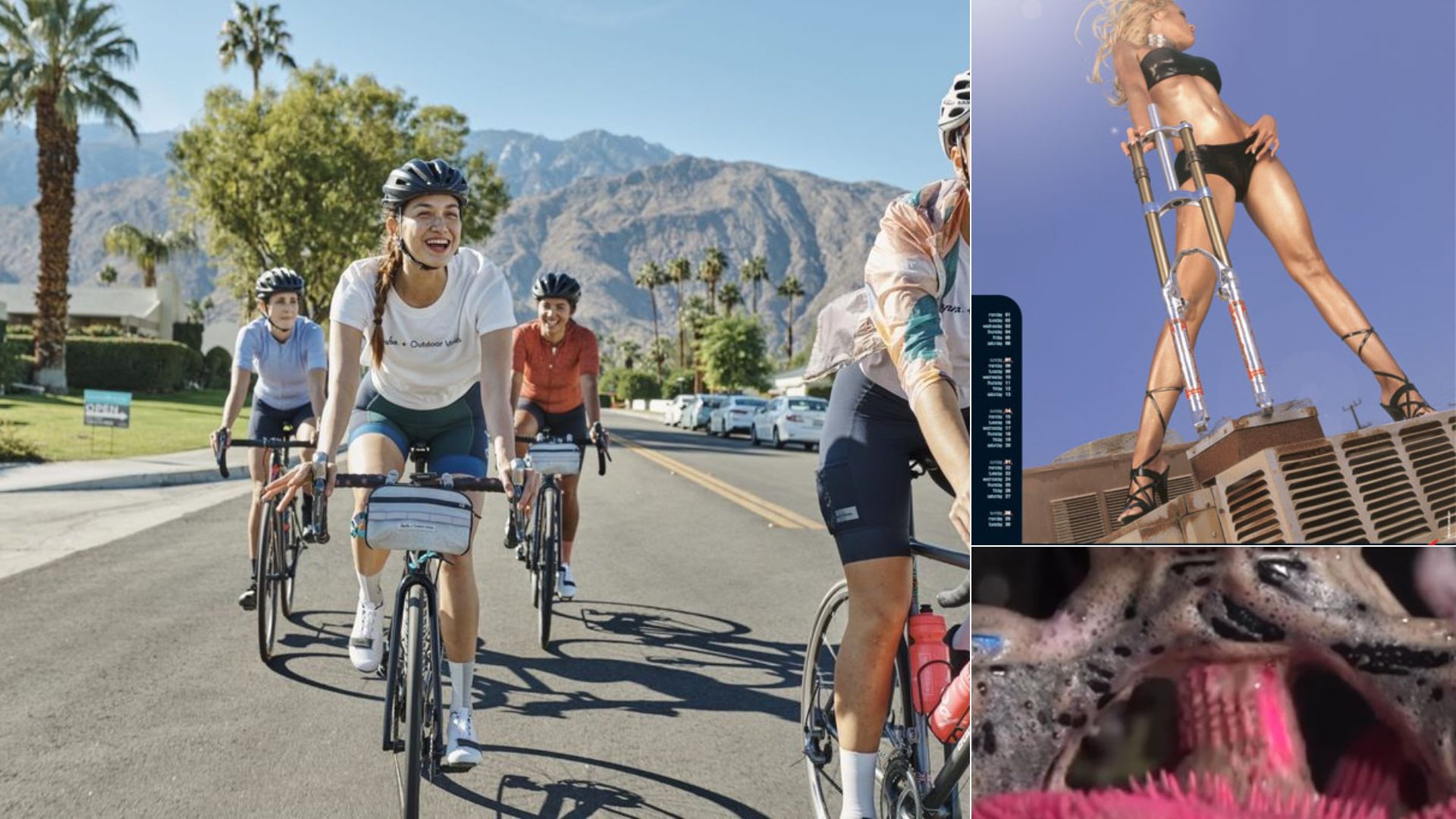
The days of sexy cycling calendars and bikini clad 'bomber girls' wielding forks may be over, but hypersexualised advertising is not - as an Instagram ad published last month by cleaning product brand Muc Off demonstrated. However, the reaction it prompted is a symptom if a shifting audience.
The Muc Off ad in question - which depicted a man "finger blasting" (according to one commenter) every orifice of his bike and suggestively rubbing down surfaces, accompanied by the caption "show that filth who’s boss" - is several years old, but was reposted in January.
The footage polarised its audience. Women - and men - were angry and offended, but others were offended by the level of offence. Whilst plenty of those responding said the ad was "harmless" and "funny", one Instagram user asked "and you wonder why there's not equality in cycling?" and another commented "the 70s called and wants its misogyny back".
This from an industry that, ten years ago, found it acceptable to fill the halls of the annual tradeshow - Eurobike - with models wearing (pretty much) only bodypaint, an industry that (this website included) didn’t appear fazed by the annual ‘Cycle Passion’ calendar, which depicted women at the pinnacle of our sport straddling tyres and ‘riding’ stems.
I will be honest: my initial response to this video was not one of offence, disgust or shock. It just felt - out of place. However, the more I thought about its creation within the context of a historically male dominated sport - which is still struggling to attract female audiences - the more uncomfortable I felt about its existence.
"Twenty years ago in the Marzocchi [bomber] girls era, you wouldn’t get the backlash" says professor in Marketing and Consumption at the University of Bristol, Dr Fiona Spotswood - referring to the adverts and calendars produced by suspension brand, Marzocchi. "Women would have just eye-rolled, or just not engaged with it. Now we are in a different space," she confirms.
Instead, according to Spotswood, women who have become disengaged are "curating and creating" their own representations of what it means to be a cyclist - sausage legs, and all.
The fear factor
Sex used to sell. But, it seems, it doesn’t anymore. What’s changed?
A prevalent argument against marketing which utilises hypersexualisation within the space of cycling is that it plays on concerns women have around their safety.
"Sadly, we've grown up as women being aware that some situations could be deemed as risky," managing director at PR firm Fusion Media, Wiesia Kuczaj, states. "Of course, we should all be fine riding anywhere they want at any time of the day, but for some women in the back of our minds, we're like, 'is it safe?'".
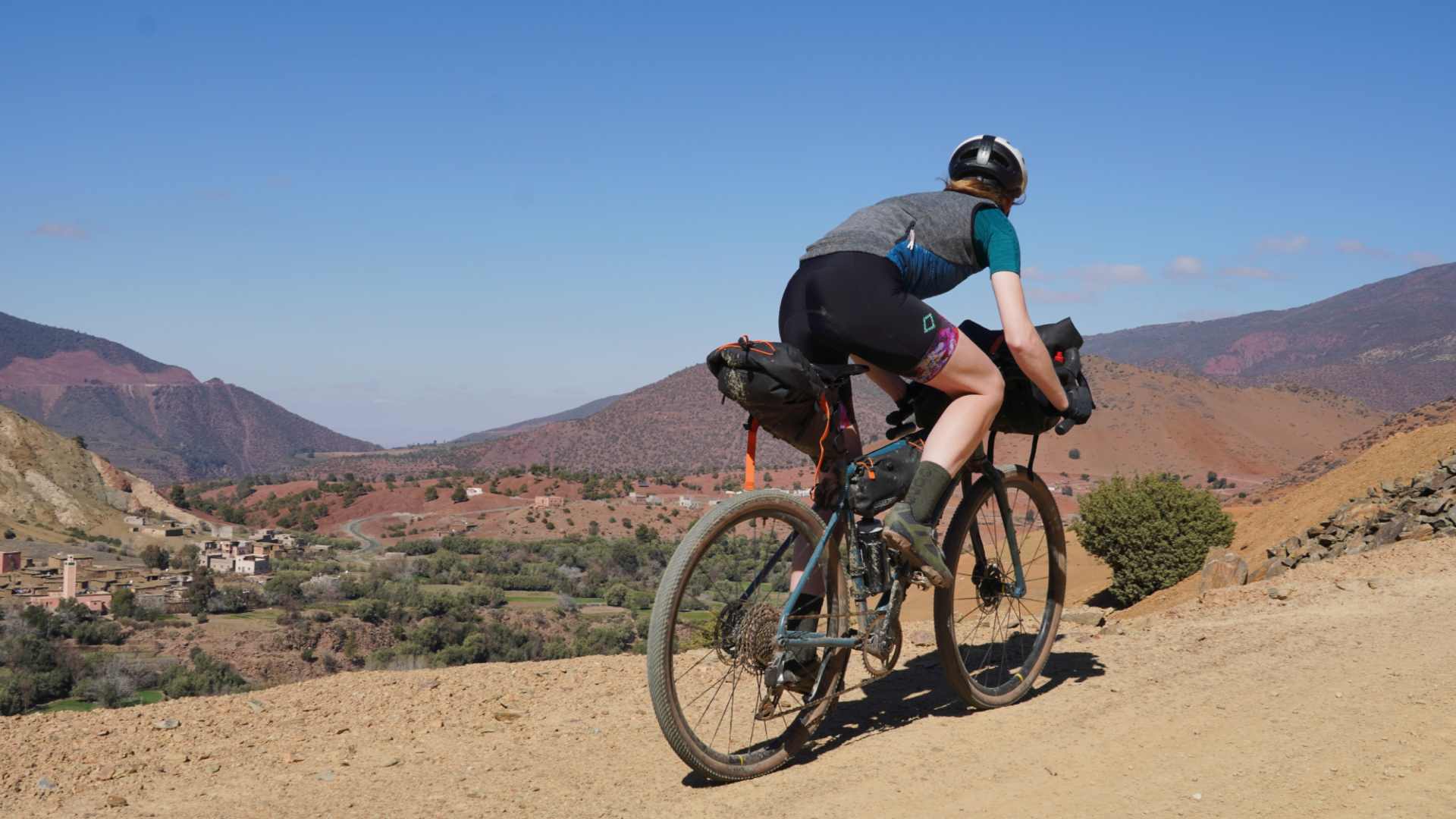
"When I participated in the Transcontinental [bikepacking adventure race], I had a fair few people comment on being brave for doing it alone as a woman. The ride was not only beautiful but also one of the best experiences of my life. However, I did have frustrating moments due to the behaviour of some men. For instance, one man pulled me off my bike, I also had a guy get his d*ck out and wave it at me. I was so angry as this behaviour only served to reinforce stereotypes," she notes.
"One man pulled me off my bike, I also had a guy get his d*ck out and wave it at me."
"The timing of the Muc-off advert, coincided with a friend sharing her experience on a trail. She was closely followed by a male rider on a MTB trail who was frustrated with her pace. When she moved aside to let him by, he made a remarked well at least you have a nice ar*se. Alone in the woods, she was pretty taken back. This comment was likely thoughtless, but highlights a lack of understanding among some men that such experiences can be genuinely frightening. We're often raised with the awareness that being alone in the woods carries risks."
When Kuczaj posted on LinkedIn expressing her own views, she was called "woke" and criticised for stifling "creativity", addressing this, she explained: "The parallel between this behaviour and the tone of the Muc-off advert to me was striking. Despite claims of 'creativity,' in comments floating around in relation to the ad, I firmly believe that advertising which sexualizes and objectifies women is far from empowering. Instead, it's harmful, perpetuating societal norms that normalize and even encourage perceiving women as objects."
"77% of female respondents agreed or strongly agreed that 'advertising that sexualises and objectifies women contributes to violence against women'"
Behind the Ads report
Kuczaj's comments are supported by data within the Behind the Ads report, produced by Women’s Health Victoria, which showed that 77% of female and 65% of male respondents agreed or strongly agreed that "advertising that sexualises and objectifies women contributes to violence against women".
Speaking on a Cade Media video, producer Emily Childs expressed similar sentiment: "A lot of women don’t feel safe in cycling spaces. One of the predominant reasons for this is the fear of harassment and unwanted sexual attention. I think this advert, probably unintentionally, plays into that exact fear."
Childs added: "A lot of [women] go through life very on-guard, and hyper aware of threat. What we learn very quickly is that hypermasculine, and very hypersexualised spaces, are not generally safe spaces for women, they tend to be a hotbed for this kind of unwanted interaction."
Continuing, she noted: "While an advert of a man washing his bike suggestively doesn't really have anything to do with that, making an advert about something that’s very non suggestive, very innocuous, making it sexual, makes women want to exclude themselves from that space because it automatically feels unsafe."
An industry turning its back on lad culture
Aside from the fear factor, other objections were that the ad played into "lad" culture. Spotswood recently carried out interviews with "80-85 women", with a focus on mountain biking, as part of a qualitative research project, with the goal of producing guidelines for making the sport more inclusive.
"What we found, in our research, was that women felt utterly disengaged with mountain bike media. And there was a real sense of rejection, especially from the younger women."
"Why would I want to be part of that stale male culture?"
"Women I interviewed said, ‘I know exactly what mountain bike culture is: it's groups of lads at trail centres, they're not open and not inclusive, talking about the ‘misses’ talking about getting ‘a pass’, assuming that women are not part of his culture. And I'm not interested, why would I want to be part of that stale male culture?’", she observes. Instead, they’re building their own culture, "curating and creating, we see this in short films, [and the popularity of] social media influencers."
Short films celebrating the riding experiences of relatable and inspiring women - such as the Adventure Syndicate's 'Divided' and the Motherload Movie - are often shared and celebrated within a popular "industry womxn" WhatsApp group,
Divided, for example, "documents the journey of two friends over a 2745 mile mountain bike race" - and is filled with joy and struggle, as well as humour; 36 seconds into the trailer, laughs accompany the comment "she's got such bad sausage leg, that it's rubbing on her Apidura frame bag", followed by protestations that "that is not my normal knees!". 'Sausage leg', in advertising campaigns, is often avoided, if not airbrushed - despite being an entirely normal physiological response to the tight grippers of cycling shorts.
Unlike twenty years ago, when Spotswood was competing, most campaigns and cycling magazines now include more images of women. However, ‘images of women’ aren’t enough, she argues.
"Marketing executives I’ve interviewed often say ‘we struggle to find women who can ride well enough.’ So what you mean is", she states, "you've got a very narrow definition of what is acceptable, and you're going to find women that fit."
She also noted that many of the women she spoke to felt they couldn't "legitimately" call themselves bikers or didn't "deserve" their bikes, considering themselves "too fat, or too old" to be a part of the group.
The suggestion the the cycling industry pedals a narrow representation of the sport is backed up by statements within the Bicycle Association's 2023 report into the industry's workplace diversity, which found a "narrowly-defined enthusiasm for cycling" was present. One responder said: "the cycle industry is intolerant of people who don't want to wear Lycra kit and ride racing bikes."
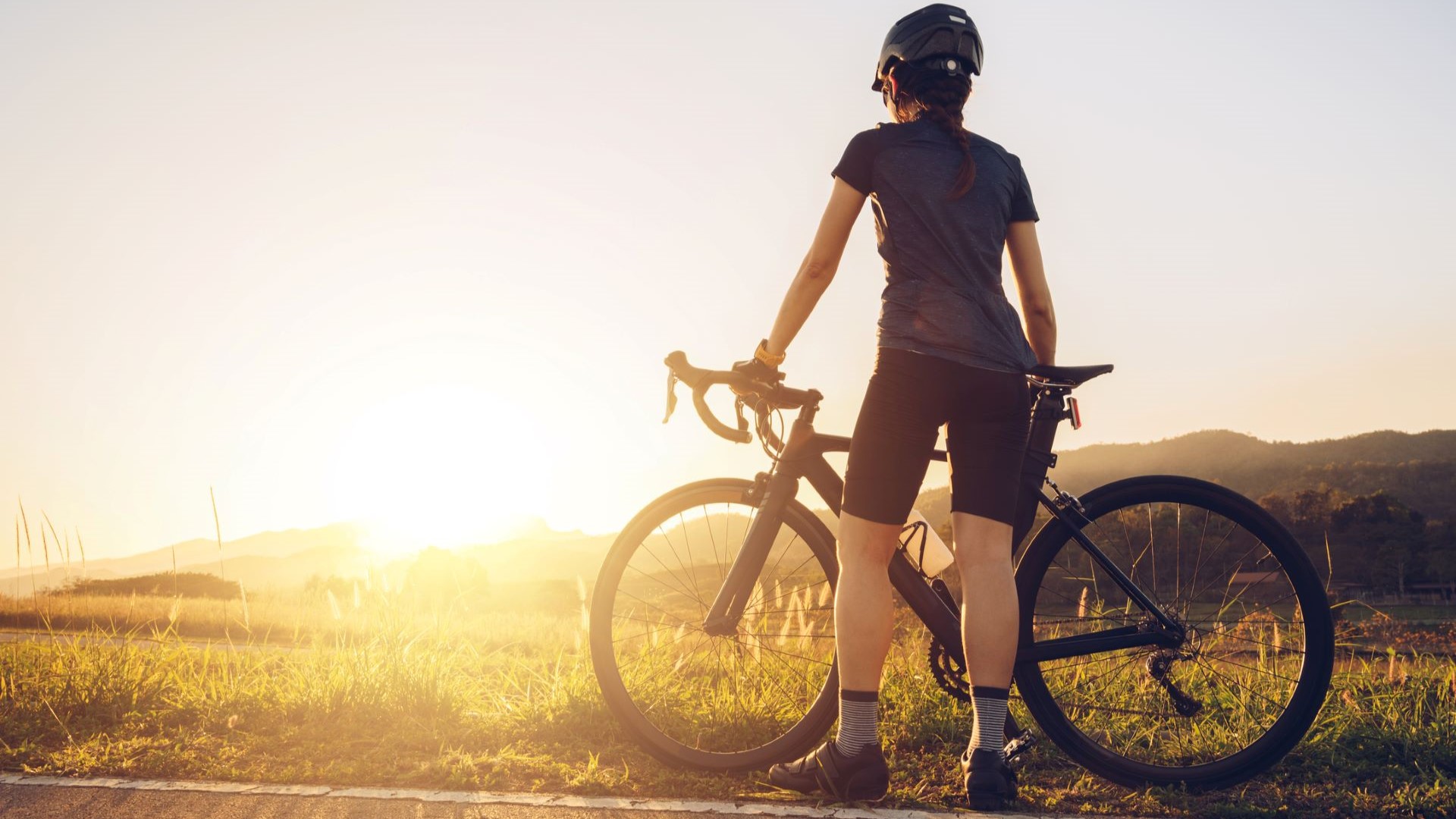
The Behind the Ads report, which looked at the culture and effect of the advertising industry in Australia, found that 67% of respondents said that industry and workplace culture has a 'very' or 'extremely' strong influence on the advertising content that workplaces produce.
Within cycling, women are very much the minority, and a report released by the Bicycle Association showed that 71% of female respondents said they were considering leaving the industry.
Muc Off's recently shared video was produced by a marketing department with a female manager; however, Cycling Weekly understands that it was created whilst Hollie Weatherstone - who described her experience in the industry as a "mixed bag" in an interview explaining her reasons for leaving - was on maternity leave.
What women are looking for, Spotswood believes, is a representation that accepts - and celebrates - how they want to ride.
"A lot of women said ‘I don't engage with mountain biking in the same way that I see in the magazines’, which provide a narrow representation of high octane, risk loving, hypermasculinity. And actually, although that's fun to some women," herself included, she adds, "women were saying ‘there's such a range of things that I connect with: the landscapes, the people, the adventure, the challenge’. They’d say ‘it teaches me that I'm better than I ever thought or I'm more capable than I thought’, ‘it is a coping mechanism’, ‘there's nothing better than pedalling your way to the top of a hill to watch the sunset’. The published media just isn’t telling that story for them."
By contrast, Spotswood said Alpkit's content was repeatedly applauded by her interviewees, whilst Kuczaj referanced Rapha - reminding me of the 'Outdoor Voices' campaign which showed groups of women cycling together and resonated particularly well.
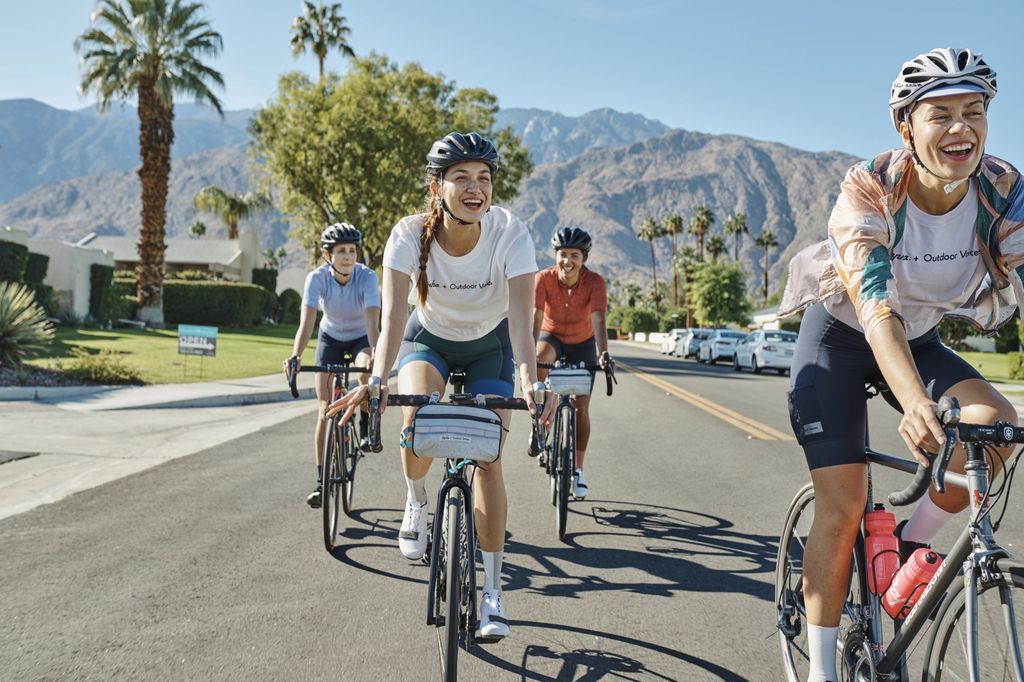
Adverts which are hypersexual, and hypermasculine, simply exacerbate the disengagement women feel with an already male dominated sport, further "othering" women, as Spotswood puts it. Speaking of the most recent example of this form of advertising, she added "this ad is just a symptom of the lads club. But the backlash to me is really promising."
Far reaching implications
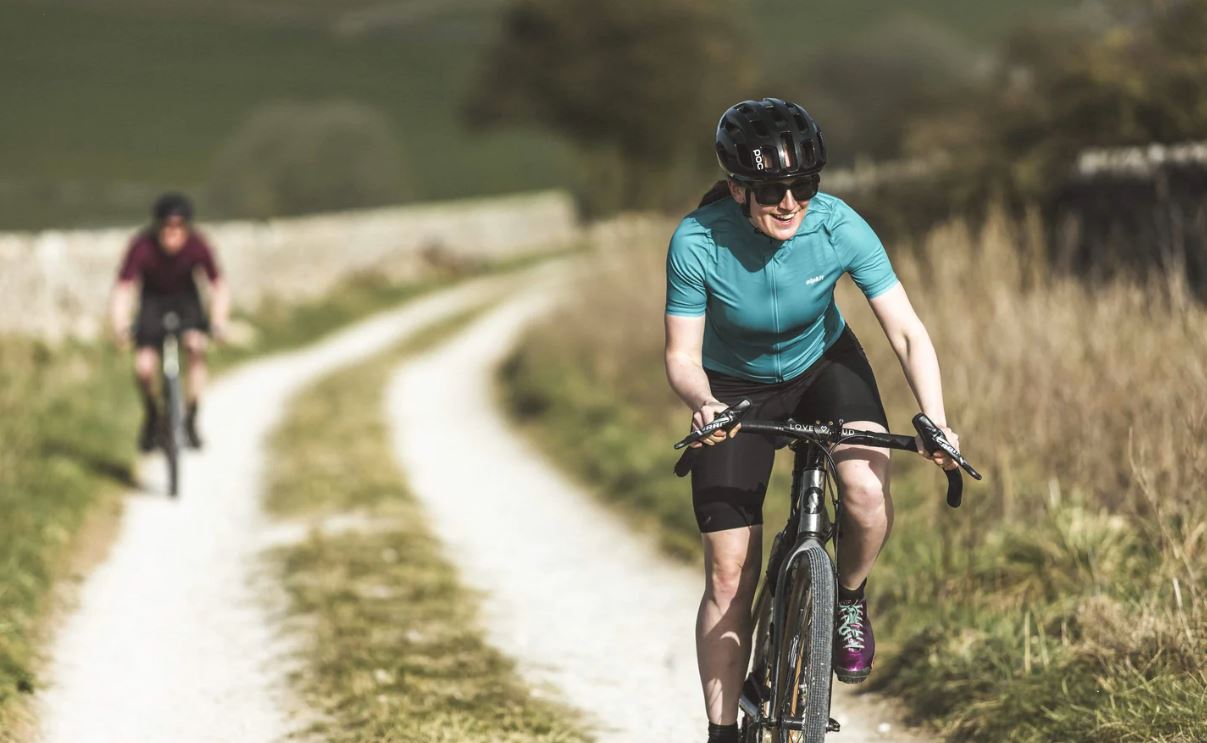
Imagery that sexualises and objectifies women doesn't just turn them off sport, it can have far reaching implications. According to the Australian report, "the consequences of the sexualisation of girls and women include: eating disorders, lower self-esteem, depression, anxiety about appearance, and feelings of shame."
It added: "These representations help perpetuate inequalities based on gender, including significant differences between men and women in everyday life (e.g., level of education, income, employment)."
Sport is about much more than the activity itself, "it's not an island on its own, it's part of society - a really important part of it, it's part of active leisure time", Spotswood says. And the media our industry produces isn’t just about selling bikes, selling product - and indeed - selling subscriptions. "It represents what we do and what we connect with. It gives you the resources to participate". Spotswood says. Anyone, therefore, creating media with a lens on sport needs to be mindful of the role they play in shaping the landscape. Admission where it's due: this is an area where, at Cycling Weekly, we still have ample room for improvement, and it's something we're working on.
And for those with their eyes firmly on the bottom line? Kuczaj puts it well: "It's not 'us versus them'. We're all struggling at the moment, aren't we? It's a difficult time," she notes, referring to the turbulence facing the entire industry following the Covid pandemic, "let's diversify. There's loads of women riding out there. You need to talk to them. Maybe a change to the ‘old boys club’ is scary. But they won’t be spending from their grave."
Muc Off was contacted for a comment relating to this article, and we'll update this piece if one is provided.







